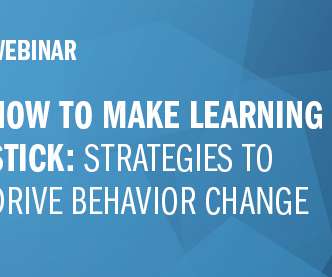The ROLE of Emotional Intelligence in Effective Leadership Today
The Center For Leadership Studies
NOVEMBER 23, 2020
Zig Ziglar is known for saying, “You must manage yourself before you can lead someone else.” At every level of the organization, EI’s pivotal role is to help the leader: Manage self. At every level of the organization, EI’s pivotal role is to help the leader: Manage self. Manage others. Manage work. MANAGE SELF.





















Let's personalize your content